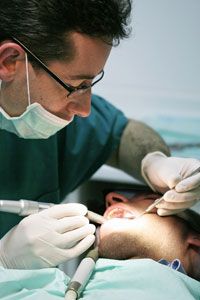So, you want to be a dentist. That makes sense: Dentistry can be a very lucrative career and dentists are in demand pretty much everywhere. You'll need a doctorate in dentistry, so you'd better prepare yourself for that challenge. There are just a few dozen dental schools in the U.S., and they typically field hundreds -- or even thousands -- of applications every year while only accepting a small fraction of those who apply. These schools have rigorous academic standards and you have to take a difficult exam that tests not just your knowledge, but also your eyesight and, in some cases, your coordination.
The one nice thing about applying to dental school is that the process is streamlined in the U.S. You can apply to schools throughout the U.S. through a single organization, so you only have to fill out all the forms once -- no matter how many schools you apply to.
Advertisement
Of course, before you even get to the application process, you have to decide what kind of school to apply to. Public or private? Specialty or general practice? Three or four-year program? Keep in mind that you'll be entering a field with an average salary of more than $100,000, but you might rack up more than $200,000 in student loans. Hey, no one said becoming a dentist would be easy.
With that in mind, this article will offer a basic road map of the dental school admissions process. What courses should you take? What grades do you need? How can you get the best possible score on the required exams? Find out on the next page.
Advertisement



